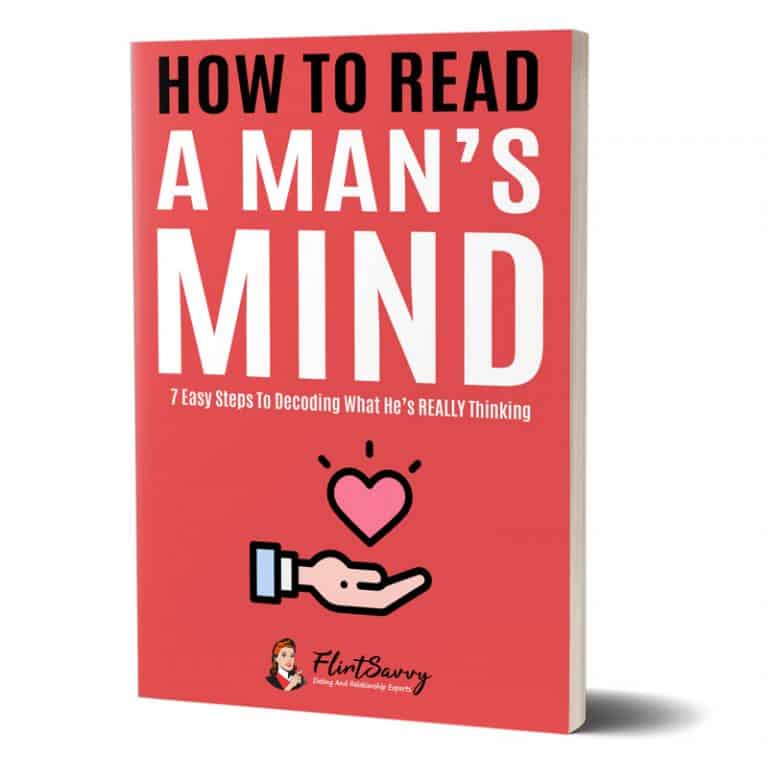Do you find yourself feeling anxious and panicked when you’re away from your boyfriend?
Does the thought of being apart from him for even a short period of time fill you with dread?
If so, you may be experiencing separation anxiety.
This type of anxiety can be overwhelming and can take a toll on your mental health and relationships.
But why does it happen?
In this article, we’ll explore the root causes of separation anxiety and provide tips on how to manage it.
Whether you’re in a new relationship or have been with your partner for years, understanding separation anxiety can help you build a stronger, healthier bond.
So let’s dive in and explore why you may be experiencing separation anxiety from your boyfriend.
Why Do I Have Separation Anxiety From My Boyfriend?
Attachment is a key factor in the development of separation anxiety. Attachment refers to the bond that forms between you and your childhood caregivers. If you learned you could trust your parents or other guardians to take care of your needs, you most likely developed a secure attachment. However, inconsistent love and support can lead to insecure attachment, which can manifest as separation anxiety in adult relationships.
If you have an anxious attachment style, you might worry about your partner leaving you, need a lot of reassurance to believe they really love you, find it difficult to spend time alone, and depend on them to meet most of your needs. Childhood diagnosis of separation anxiety disorder could also increase your chances of experiencing separation anxiety in adult relationships.
Separation anxiety in a relationship is the feeling of genuine fear, anxiousness, and/or panic when being away from your partner. It’s an unusually strong fear of or anxiety that results from separating from someone to whom you feel a strong attachment. If you think you might have relationship separation anxiety, it doesn’t mean there is anything wrong with you or your relationship. Most people’s responses in relationships come from their childhood experiences, traumas, or unmet needs.
Relationship anxiety among spouses is common in people with adult separation anxiety disorder. You may become very fearful and worry a lot when away from your partner. You might also have fears about being left alone or abandoned by your partner. These genuine feelings may cause panic when you’re alone.
Separation anxiety can make it difficult for you to be apart from your loved ones, your partner in particular. It can cause a wide range of symptoms and take a toll on your mental health as well as your relationships. Practicing yoga and meditation and keeping yourself meaningfully occupied can help you control your anxiety. However, understanding why these symptoms exist and addressing the deeper layers—including processing any unresolved trauma—will ultimately be the way to truly heal from separation anxiety.
What Is Separation Anxiety?
Separation anxiety is a condition where an individual experiences excessive fear or anxiety concerning separation from those to whom they are attached. This can include close blood relatives, spouses or intimate partners, and roommates. The anxiety can result in constant worry about being apart from their loved one, nightmares, physical complaints, and other symptoms that significantly impact their life. Although separation anxiety is more common in younger adults as they adjust to living independently, adults later in life can be affected as well, sometimes prompted by major life events such as when children leave home, a spouse dies, or family move away.
Attachment is a key factor in the development of separation anxiety. If an individual learned they could trust their childhood caregivers to take care of their needs, they most likely developed a secure attachment. However, inconsistent love and support can lead to insecure attachment, which can manifest as separation anxiety in adult relationships. People with an anxious attachment style may worry about their partner leaving them, need a lot of reassurance to believe they really love them, find it difficult to spend time alone, and depend on them to meet most of their needs.
Separation anxiety in a relationship is the feeling of genuine fear, anxiousness, and/or panic when being away from your partner. It’s an unusually strong fear of or anxiety that results from separating from someone to whom you feel a strong attachment. If you think you might have relationship separation anxiety, it doesn’t mean there is anything wrong with you or your relationship. Most people’s responses in relationships come from their childhood experiences, traumas, or unmet needs.
Relationship anxiety among spouses is common in people with adult separation anxiety disorder. You may become very fearful and worry a lot when away from your partner. You might also have fears about being left alone or abandoned by your partner. These genuine feelings may cause panic when you’re alone.
Separation anxiety can make it difficult for you to be apart from your loved ones, your partner in particular. It can cause a wide range of symptoms and take a toll on your mental health as well as your relationships. Practicing yoga and meditation and keeping yourself meaningfully occupied can help you control your anxiety. However, understanding why these symptoms exist and addressing the deeper layers—including processing any unresolved trauma—will ultimately be the way to truly heal from separation anxiety.
The Science Behind Separation Anxiety
Separation anxiety can be attributed to the fight-flight-freeze response, a physiological reaction designed to protect us from perceived danger. When we feel threatened or unsafe, our body releases stress hormones such as cortisol and adrenaline, which increase our heart rate, blood pressure, and breathing rate. This response is triggered when we are away from our loved ones, especially if we have an insecure attachment style.
Research has shown that separation anxiety can also be linked to the brain’s reward system. When we are with our loved ones, we experience pleasure and reward through the release of neurotransmitters such as dopamine and oxytocin. These chemicals create a sense of connection and bonding, which can make it difficult to be away from our partners.
Furthermore, studies have found that separation anxiety can lead to changes in brain structure and function. Chronic anxiety can cause the amygdala, the brain’s fear center, to become overactive, leading to heightened feelings of fear and panic. The prefrontal cortex, responsible for decision-making and emotional regulation, may also be affected by anxiety, making it harder to control our emotions and behaviors.
Common Causes Of Separation Anxiety In Relationships
There are several common causes of separation anxiety in relationships, many of which stem from attachment issues. Inconsistent love and support during childhood can lead to insecure attachment, which can manifest as separation anxiety in adult relationships. Additionally, a childhood diagnosis of separation anxiety disorder can increase the likelihood of experiencing separation anxiety in adult relationships.
Other factors that can contribute to separation anxiety in relationships include past traumas, unmet needs, and fear of abandonment. People with adult separation anxiety disorder may have faced a significant loss in the past, such as the death of a loved one or a major life event like children leaving home. Other mental health conditions, such as anxiety or depression, may also influence separation anxiety.
It’s important to note that separation anxiety in relationships can look different from person to person and couple to couple. It’s not a linear experience and can range from relatively mild to extreme. However, it’s essential to recognize the issue and communicate it with your partner. Being vulnerable and honest with your partner can bring you closer and ultimately benefit your relationship in the long run.
If you’re struggling with separation anxiety in your relationship, seeking support from a qualified therapist can be helpful. They can help you process any unresolved trauma or attachment issues and develop coping strategies to manage your anxiety.
Signs And Symptoms Of Separation Anxiety
Separation anxiety in a relationship can be recognized by a feeling of extreme distress at the thought of being separated from your partner. This uneasiness goes beyond simply missing your partner and might involve some deeper apprehension that you can’t survive without them or fears they’ll be hurt and you’ll lose them forever. Some of the specific symptoms of separation anxiety in a relationship include frequent and persistent worries about your partner experiencing an injury, accident, death, or anything else that leads to separation. You may also experience fear and unease when traveling without them or discomfort and distress when they leave. A need to know where they are, and when they’ll return, whenever you’re apart is also common. Difficulty sleeping without them, difficulty concentrating at work or school because you can’t stop thinking about whether they’re safe, persistent or overwhelming fears that they’ll abandon you or end the relationship, and general restlessness and irritability are other signs to look out for. In some cases, physical anxiety symptoms such as stomach distress, headaches, or sleep problems may also occur during your time apart or when worrying about an upcoming separation.
How To Manage Separation Anxiety In Relationships
If you’re struggling with separation anxiety in your relationship, there are several strategies you can use to manage it. Here are some tips:
1. Recognize the signs: The first step in managing separation anxiety is to recognize the signs. Talk to trusted family, friends, or professionals to help identify your symptoms.
2. Admit and accept it: Admitting and accepting that you have separation anxiety can be helpful in managing it. Recognize that it’s a deep fear of letting go of loved ones and work towards accepting it.
3. Observe healthy relationships: Observing healthy, interdependent relationships can be useful in providing a template for how a relationship should be. This can help you move away from co-dependent, insecurely-attached relationships.
4. Believe in your own capabilities: Remind yourself that separation anxiety is temporary and can be eased by being mindful of your own capabilities. Seek ways to meaningfully occupy your time while apart from your partner.
5. Try yoga and meditation: Physical and mental exercise routines like yoga and meditation can help combat anxiety by promoting relaxation and mindfulness.
6. Seek therapy: Professional treatment such as cognitive behavioral therapy (CBT) can be helpful in reframing cognitive biases or learning how to relax when anxiety ramps up.
7. Talk to someone about it: Talking to someone about your separation anxiety can help release any shame and provide support. Consider talking to a friend, partner, or therapist.
8. Be kind to yourself: Don’t add stress by making yourself feel bad for feeling anxious. Be gentle with yourself and hold space for your feelings.
9. Journal or call a friend: Writing down your thoughts and feelings or calling a non-judgmental friend can be helpful in processing emotions.
10. Go for a walk: Moving your body and changing scenery can help improve mood and provide clarity when feeling stuck.
Remember, managing separation anxiety takes time and effort. With patience and self-compassion, you can learn to manage your symptoms and build healthier relationships with your loved ones.
Communication Strategies To Help Overcome Separation Anxiety
When dealing with separation anxiety in a relationship, communication is key. Here are some strategies that can help you overcome separation anxiety through communication:
1. Recognize and acknowledge your feelings: The first step to overcoming separation anxiety is to recognize and acknowledge your feelings. Talk to your partner about how you feel when you’re apart, and be honest about your fears and worries. This will help them understand what you’re going through and provide emotional support.
2. Set boundaries: It’s important to set boundaries with your partner when dealing with separation anxiety. Communicate your needs and expectations clearly, and work together to find a balance that works for both of you.
3. Develop a plan: Developing a plan can help alleviate anxiety by providing structure and predictability. Talk to your partner about how often you’ll communicate when you’re apart, and what activities you can do to keep yourself occupied.
4. Seek professional help: If your separation anxiety is severe, it may be helpful to seek professional help. Cognitive-behavioral therapy (CBT) can be an effective treatment for separation anxiety, helping you reframe negative thoughts and develop coping strategies.
5. Practice healthy communication: Healthy communication is essential in any relationship, but it’s especially important when dealing with separation anxiety. Make sure to express your feelings in a constructive way, listen actively to your partner, and work together to find solutions that work for both of you.
Remember that overcoming separation anxiety takes time and effort, but it’s possible with the right tools and support. By communicating openly with your partner and seeking professional help if needed, you can learn to manage your anxiety and build a stronger, healthier relationship.






